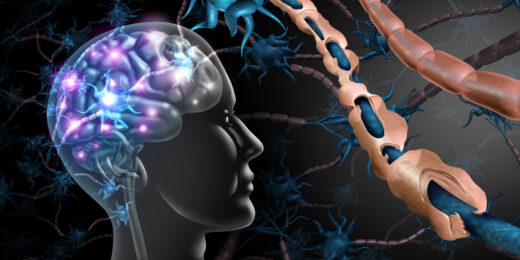Nichole Tyson, MD, has advice for young people seeking help for menstrual problems – including painful, irregular or heavy periods.
Category: Patient Care
How to regulate AI? Bioethicist David Magnus on medicine’s critical moment
The applications for AI in medicine are being explored deeply at Stanford Medicine and elsewhere. Putting guardrails in place now is crucial.
Celebrating Hispanic Heritage Month at Stanford Medicine
Stanford Medicine celebrates the contributions, care, and research that's by and for the Hispanic community.
How can medicine achieve more diversity in clinical trials?
Bonnie Maldonado speaks to the importance of broadening inclusivity of clinical trials to ensure treatments work for all people.
What physicians get wrong about the risks of being overweight
Stanford medicine statistician Maya Mathur found that doctors have misconceptions about being overweight shortening lifespans.
Can altering cancer ‘mindsets’ change physical outcomes?
Researchers found that a mindset intervention could improve the self-reported overall quality of life for adults undergoing cancer treatment.
From brain injury to support group
For Kaitlyn McCaffery, a brain injury survivor, finding community was the key to lifting her spirits during recovery.
How to safeguard teens’ well-being on social media
A Stanford Medicine expert has tips for parents wondering how to help teens balance mental health concerns and social media use.
Ask Me Anything: Menopause
Karen Adams, MD, menopause expert, defines and discusses menopause, what to expect in this phase of life, and other helpful advice.
Bringing addiction treatment ‘inside the house of medicine’
Addiction expert Keith Humphreys discusses how to change the opioid narrative and treat the condition like a chronic disease.
Migraine headaches: What are they and how do you treat them?
Stanford Medicine headache fellow Sheena Pillai explains what doctors know about migraine attacks and describes treatment options.
A more complete imaging technique could personalize cancer treatment
Stanford Medicine scientists devised a cancer imaging technology that opens doors to new research questions and precision medicine.
A night in the life of an emergency department physician
Al’ai Alvarez, MD, a night shift doctor, or nocturnist, illuminates the culture and environment of the emergency department at night.
Rethinking large language models in medicine
Stanford Medicine researchers and leaders discuss the need for medical and health professionals to shape the creation of large language models.
Imaging multiple sclerosis
Researchers developed a novel way to image inflammation in multiple sclerosis, a disease that is notoriously difficult to diagnose early.
Female distance runners improve health — and speed — with better diet
Stanford Medicine researchers find that with improved nutrition, female runners suffer less injuries and improve health overall.

















